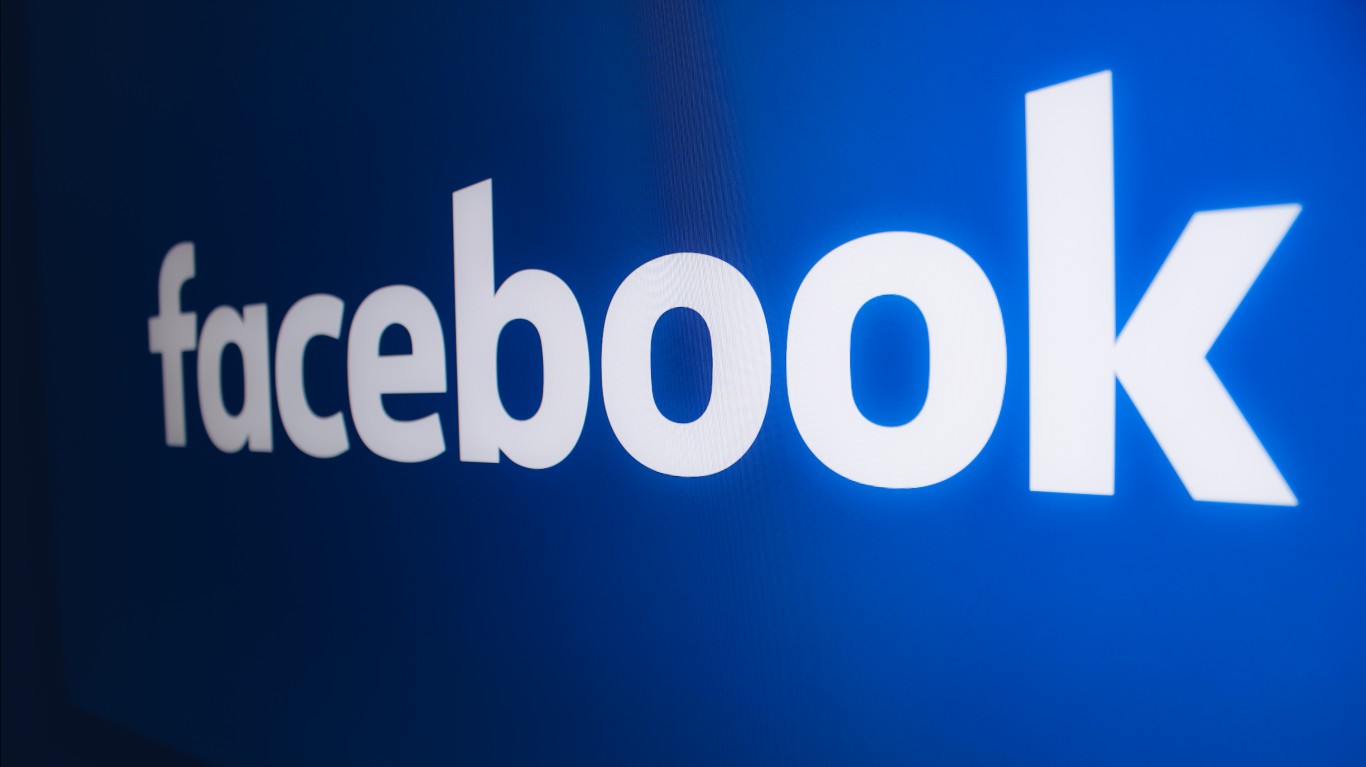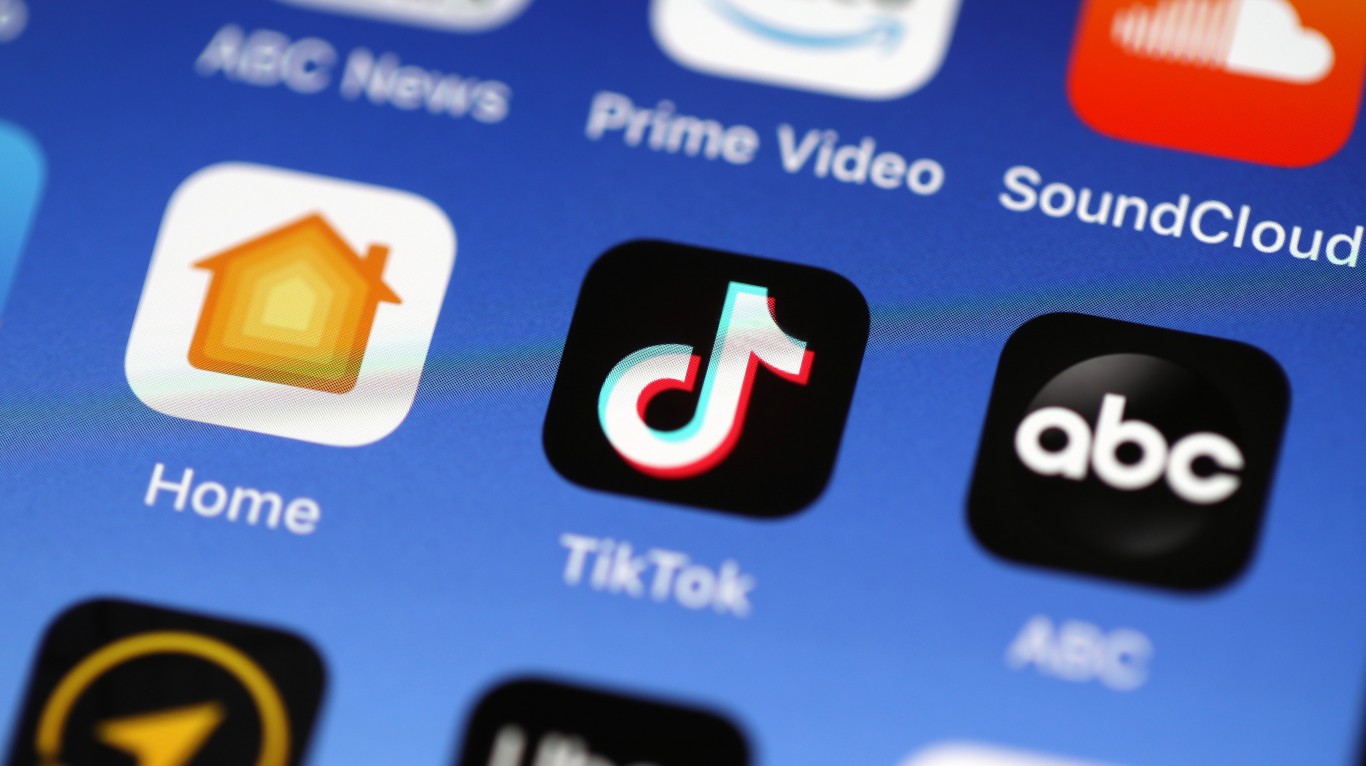
Tech stocks drove a stock market rally last week, but what are the prospects for Facebook Inc. (NASDAQ: FB) in the age of coronavirus? Thanks to shelter-in-place orders around the globe, usage is way up. But the Menlo Park, Calif., tech giant faces strong headwinds due to declines in advertising.
A Strong Q1
Investors still like the stock. Closing at $213.18 per share on Monday, the stock price is near its 52-week high of $224.20. FB is up 3.86% year to date, with analysts setting a target in the $238 range.
For the first quarter, Facebook reported $1.71 in earnings per share (EPS) and $17.44 billion in revenue, compared with consensus estimates that called for $1.74 in EPS and $17.48 billion in revenue. The same period last year had $0.85 in EPS and $15.08 billion in revenue.
Daily active users totaled 1.73 billion on average for March 2020, an increase of 11% year over year. At the same time, monthly active users increased by 10% to 2.60 billion. For the first time ever, over 3 billion people are actively using Facebook, Instagram, WhatsApp or Messenger each month, the company said.
While the audience was growing, advertising revenues took a big hit in March. For the quarter, ad revenue was $17.4 billion, an increase of 17% year over year. But the floor dropped out beginning the second week of March.
Ad impressions served across all platforms increased 39% in Q1, but the average price per ad dropped 16%. CFO David Wehner said the price drop was “attributable to the reduction in advertiser demand during the last three weeks of March.”
But on a call with analysts in late April, Wehner also saw some encouraging signs. “After [the] initial steep decrease in ad revenue in March, we have seen signs of stability reflected in the first three weeks of April,” he said. The company expects strong ad sales in areas such as e-commerce and gaming, while travel and autos decline.
On the same call, founder Mark Zuckerberg said maintaining high margins is the key to surviving advertising downturns. “We are willing to accept a reduction in margins in the near term, but we understand and I personally have an appreciation for the importance of maintaining high margins over time,” he said.
Small Business Is Big
In the advertising space, the social network company says it especially wants to help its small business clients. “This is a moment where we feel that we’re well positioned to be champions for small businesses’ interests and supporters of important infrastructure that they’re going to need in order to move online,” Zuckerberg said.
As an example, he pointed to a new partnership in India, which has the largest Facebook and WhatsApp audiences in the world. The company is investing $5.7 billion in Jio Platforms Ltd. with the goal of helping the 60 million-plus small businesses in India better market and sell their goods via WhatsApp. The popular messaging app is helping small businesses with catalogues, online payments, and “click to messaging ads.”
The company is also directly helping small businesses with a $100 million COVID grant program, which will benefit 30,000 small businesses in more than 30 countries. “Applications open this month and we are focused on getting cash into their hands as soon as possible,” said COO Sheryl Sandberg. Facebook and Instagram also partnered with the U.S. Small Business Administration to spread the word about the federal relief loans.
The pandemic could accelerate the long-term growth of small business activity online. Facebook was seeing more small brick-and-mortar operations tiptoe into the digital space before the pandemic. Now with digital becoming the primary presence for these stores, it’s likely to remain a crucial part of their businesses, even when physical stores reopen. Zuckerberg says serving these businesses with new products and innovations is a key focus going forward.
Competitors
As one of America’s largest companies, Facebook faces challenges from social media sites with younger appeal, such as Snap Inc. (NYSE: SNAP). Snap reported impressive Q1 revenues, which come largely from advertising. The company is also less dependent on small advertisers, and has less exposure to the travel industry.
Twitter Inc. (NYSE: TWTR) may be having a more challenging time in the ad space. The company said ad revenue declined 27% in March.
Thank you for reading! Have some feedback for us?
Contact the 24/7 Wall St. editorial team.
 24/7 Wall St.
24/7 Wall St.

